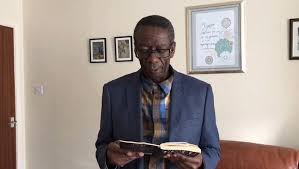Unless you are a Bible geek, which many of you are not, you may probably never have heard of the book of Numbers in the Bible (the Old Testament). But there may be a likely chance that you might have heard the tale of Balaam’s donkey. This is the story of the donkey that spoke. Donkeys don’t speak but this one did. The story is found in Numbers 22. These days of Google means that you can read the chapter for yourself, if you care.
Briefly, the story is that on their way, the Hebrew slaves who had fled from Egypt pitched camp near the country of Moab. Balak, king of Moab, was alarmed by this. He feared that they might invade his country. So, he sent envoys to a diviner called Balaam to beg him to go curse the hordes of the Hebrews. The envoys carried with them fees for divination. But in a vision, God told Balaam not to go with the envoys and certainly not to curse the Hebrews.
The envoys returned and told the news to the king. The king was sad. He sent the envoys back to beg a second time. Balaam was adamant. He even said that even if they gave him a houseful of gold and silver, he would not breach God’s word. Nevertheless he decided to ask God a second time what he should do. God told him to go with them, but only do as God commanded him. Poor Balaam mounted his donkey and went with the men.
But on the way, an angel with a raised sword stood
in the way of the donkey. Balaam did not see the angel, but the donkey did. So, the donkey veered of the path into the field. Balaam said to himself, “This is what they say about donkeys being stubborn. It’s now acting up”. He struck the donkey to turn it back onto the road. The angel changed position, standing in the way. The donkey tried to avoid the angel, but in doing so it scraped the wall and hurt Balaam’s foot who shouted, “Ooch!” and struck the donkey once more.
Then God opened the mouth of the donkey and it asked Balaam, “What have I done to you, that you have struck me these three times?” Balaam said it was because of disobedience and he said that if he had a sword, he would kill the donkey on the spot. It was at that point that the Lord opened the eyes of Balaam and he saw the angel with a drawn sword. He was prepared to slay Balaam if he proceeded on his way.
Striking points about the story:
Balaam was not a Hebrew/Israelite. But he was a prophet and a gentile.
God told Balaam the first time not to go, but he did ask again after he had been given the orders. So, God said he could go. Sometimes, when we insist on our own way, God lets as to go our way and suffer the consequences.
What about the donkey? Some will swear by all the biology or veterinary studies they know that donkeys don’t speak like humans; that they can make all sorts of noises or signs but cannot articulate a sentence. These types will not believe that the Bishops’ pigeons actually spoke.
But supposing the pigeons spoke, as many of us believe they did, then what? I think the religious leaders who set them off in the first place can draw lessons from the pigeons’ act. They were delivering a message that was not appropriate at the time. They must pray and wonder what message the pigeons were communicating to them.
This post was first published on the author’s facebook page.
Do you have a story in your community or an opinion to share with us: Email us at Submit an Article









